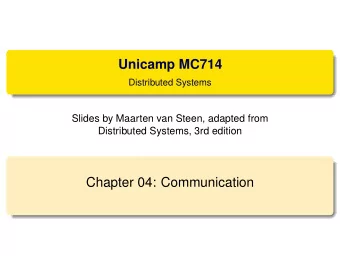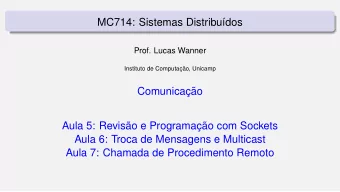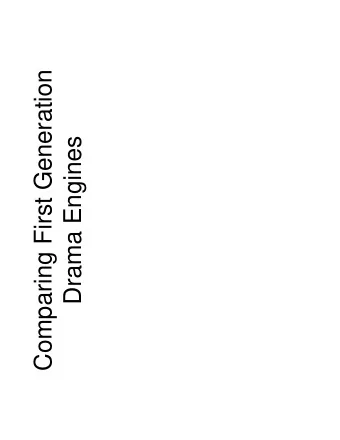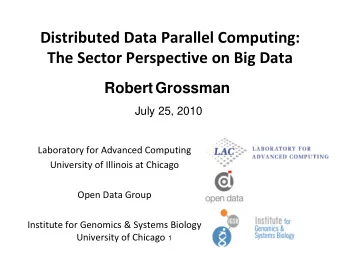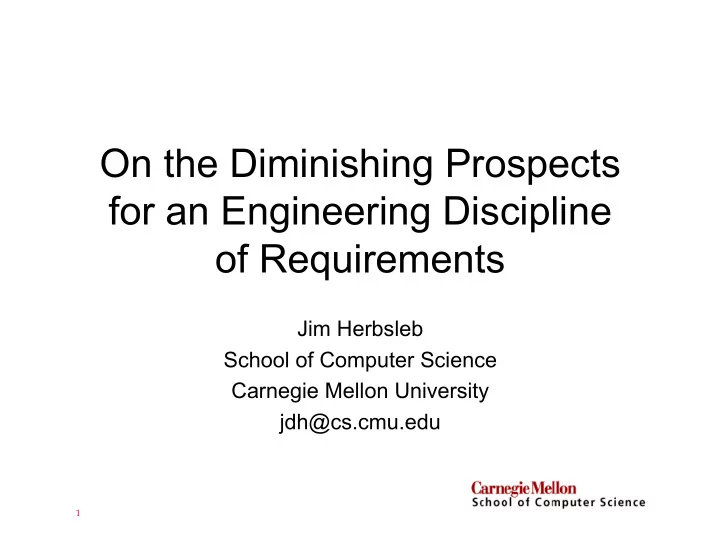
On the Diminishing Prospects for an Engineering Discipline of - PowerPoint PPT Presentation
On the Diminishing Prospects for an Engineering Discipline of Requirements Jim Herbsleb School of Computer Science Carnegie Mellon University jdh@cs.cmu.edu 1 Agenda What do I mean by requirements, and what do I mean by
On the Diminishing Prospects for an Engineering Discipline of Requirements Jim Herbsleb School of Computer Science Carnegie Mellon University jdh@cs.cmu.edu 1
Agenda • What do I mean by “requirements,” and what do I mean by “engineering”? • Why does it matter? • Why are prospects diminishing? • Suppose you believe the argument – what should we do differently? 2
Requirements • Part of the development process – interacting with stakeholders and producing representations that are used by implementers as the description for the intended functionality of a system under development • So, – If I build something for myself, for example, without the intermediate requirements step, I don’t consider that my intentions were “requirements” • Requirements always has the flavor of a translation from the stakeholders’ domain(s) to the developers’ domain(s) 3
What Is Engineering? • Creating cost-effective solutions – Engineering is not just about solving problems; it is about solving problems with economical use of all resources. • to practical problems – Engineering deals with practical problems whose solutions matter to people outside the engineering domain-the customers. • by applying scientific knowledge – Engineering solves problems in a particular way: by applying science, mathematics, and design analysis. • to building things – Engineering emphasizes the solutions, which are usually tangible artifacts. • in the service of mankind. – Engineering not only serves the immediate customer, but it also develops technology and expertise that will support the society. Prospects for an Engineering Discipline of Software, by Mary Shaw 4
What is Engineering? • “The creative application of scientific principles to design or develop . . .” – American Engineers' Council for Professional Development • “. . . applying technical, scientific and mathematical knowledge to design and implement . . .” – Wikipedia • “Engineering is the practical application of science and math to solve problems . . .” – School of Electrical and Computer Engineering, Georgia Tech • “the practical application of science to commerce or industry” – Princeton Wordnet 5
What is Engineering? • “The creative application of scientific principles to design or develop . . .” – American Engineers' Council for Professional Development • “. . . applying technical, scientific and mathematical knowledge to design and implement . . .” – Wikipedia • “Engineering is the practical application of science and math to solve problems . . .” – School of Electrical and Computer Engineering, Georgia Tech • “the practical application of science to commerce or industry” Princeton Wordnet – • Engineering is a London-based fortnightly magazine • Engineering - one of the four temperaments defined by David Keirsey’s Myers-Briggs • Engineering – Role assigned to playable characters in the Final Fantasy series of role-playing games by Square Enix • Engineering is a Tamil language film slated to be released in 1999 6
Why Does it Matter? • Aspirations and expectations that can’t – and maybe shouldn’t – be fulfilled • Hides alternatives or forces them into the background • Locks in one way – maybe not the best way – of factoring expertise 7
Why Are Prospects Diminishing? • Two factors combine to create the problem: • Software – Software is in everything – Software enables/encourages complexity • More of life is lived in and through computers 8
Computation
Individual work applications
Networks Communication Group applications
Talking to friends Texting Sharing photos Purchasing and listening to music On and on . . .
Shopping
Mating
Gossip, Pictures, Updates
Sports
And not just the young . . .
And not just men . . .
Tweeting
Team-oriented collaborative virtual mass murder
Not just the web . . .
Ultra-Fast Trading • Millions of shares in milliseconds • Distribute orders to many exchanges • Proprietary software • Will generate $8b in revenue this year • Software engineers > $10M • Sergey Aleynikov arrested last week for stealing code • Prosecutor claimed code could be used to “unfairly manipulate” markets 22
Where Are We Headed? • More and more of life is – lived in and through computers – in contexts created, controlled, and manipulated by computers . . . . 23
24
25
26
Trends Shaping Technology Design • Living in a computational landscape • Side effects are often more important than intended effects • Designed systems and social systems co- evolve • How we organize to develop systems 27
Asking a Different Question • Rather than ask – “How can I specify the system that my stakeholders need?” • Maybe we should ask – “How can I set up the socio-technical system that will allow users, consultants, businesses, and everyone else to cooperatively build what all my stakeholders need?” – “Even though those needs are currently unknowable and evolving . . .” 28
Research Directions • How to design and deploy platforms for others to build on – Individual users (e.g., end-user programming) – Domain experts (e.g., statistics packages) – Commercial firms (e.g., open source ecologies) Business Coordination Opportunities Requirements Platform Architecture Governance 29
Four Eclipse Slides 30
Eclipse Plug-in Architecture 31
Eclipse Business Opportunities • Sell plugins: Eclipse Plugin Central • Sell complementary hardware or software • Sell customization, consulting, training services • Use platform (RCP) for other products • In all cases, strong network externalities 32
Eclipse Governance - 1 • Centralized functions – IP due diligence – Rules and process – Selecting, coaching, enforcing – Recruiting and marketing • Decentralized functions – Deciding what (if anything) to build for the platform – Deciding if and how to contribute to Foundation • Committees • Marketing, etc. – Deciding on business model, how to pursue it • Services • Products 33
Eclipse Governance - 2 • Overall governance – Board of directors • Foundation Councils – Requirements – Planning – Architecture 34
Coordination in Eclipse • Overall, cooperative effort • At level of subproject – One company does nearly all the work – Sometimes companies take turns on a particular subproject – IBM maintains and enhances the platform 35
eclipse.platform tools.cdt 36
Collaboration in CDT IBM Leaves/QNX Lead WindRiver Joins/IBM Lead WindRiver Leads 37 37
Who Builds the Platform? 38 38
Community Network Structure GNOME May 2005 IBM Eclipse.platform tools.cdt gtk Eclipse May 2008 39
Do commercial developers drive away volunteers (by firm)? Developers at community focused firms have a significant a<rac=ve power while developers at product focused firms have no rela=on. 40
How to Train People for This? • Computation, Organizations, & Society – PhD program in School of Computer Science at CMU • Curriculum combines – Computer science – Machine learning/statistics – Network analysis/simulation – Policy • Very successful to date 41
Summary of the Argument • Systems that need “social smarts” are becoming increasingly prevalent • Many key issues in determining the functionality of these systems are not amenable to traditional engineering approaches • Therefore we need something in addition to traditional engineering approaches • Alternatively, we could expand our notion of engineering to encompass new approaches 42
Questions? Did you just say their field shouldn’t exist? 43
Recommend
More recommend
Explore More Topics
Stay informed with curated content and fresh updates.
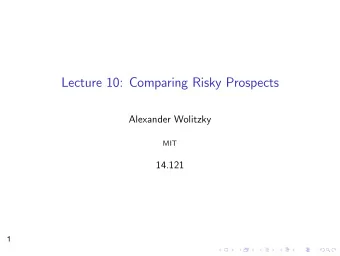
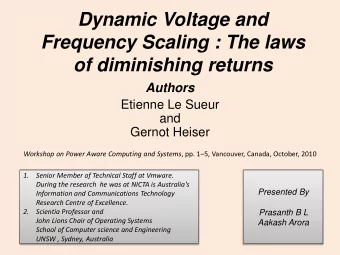
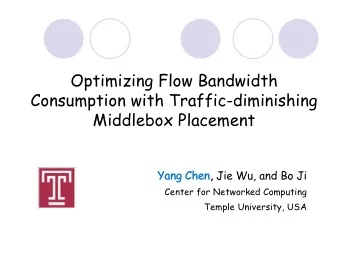
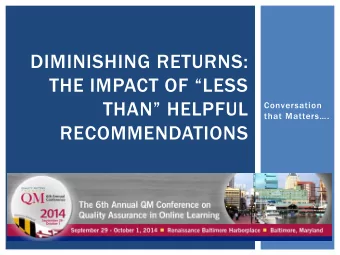
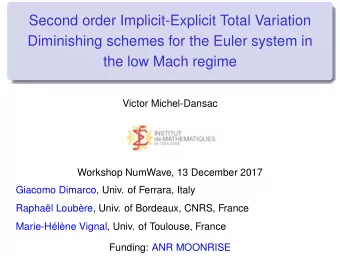

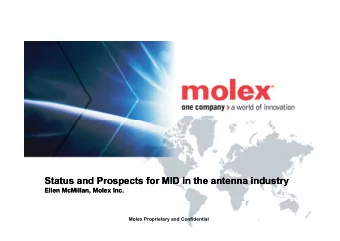
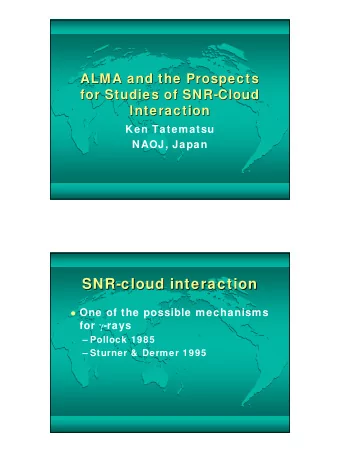
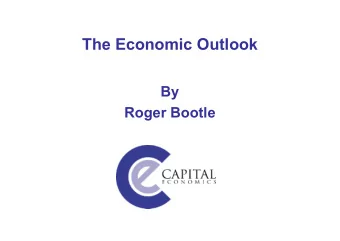
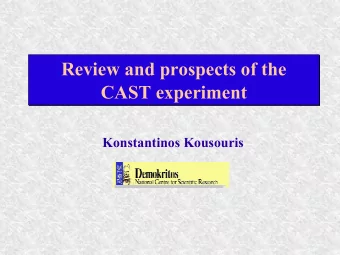
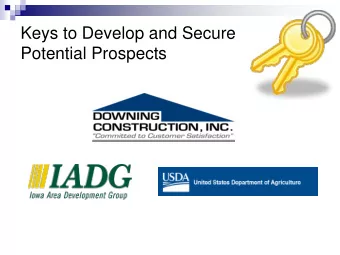
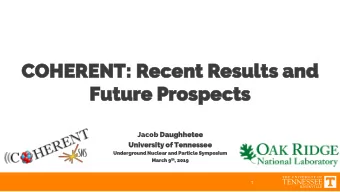
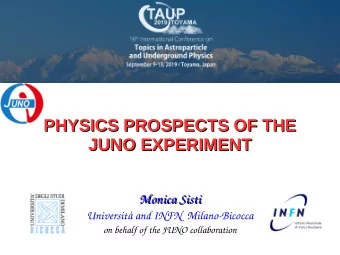
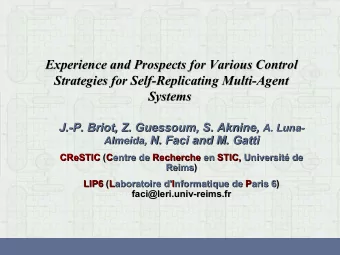
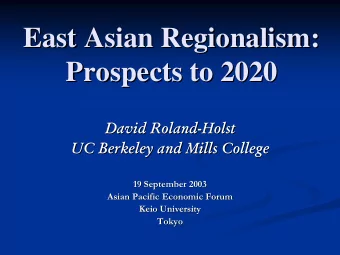
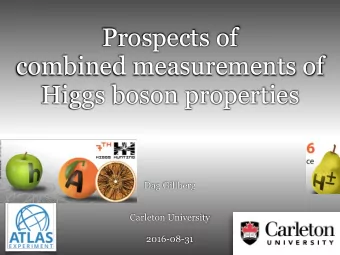
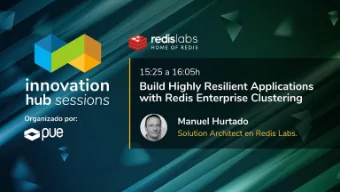
![D ISTRIBUTED S YSTEMS [COMP9243] Lecture 2: System Architecture & Communication B UILDING A D](https://c.sambuz.com/881736/d-istributed-s-ystems-comp9243-lecture-2-system-s.webp)
